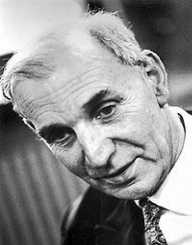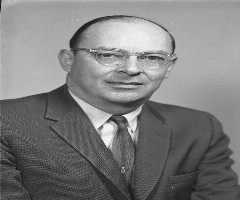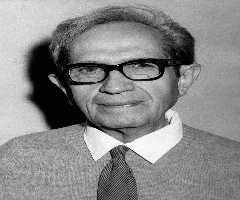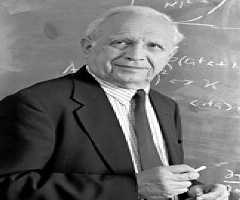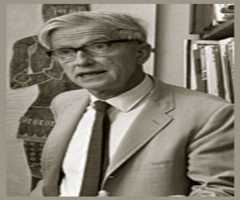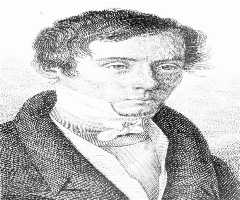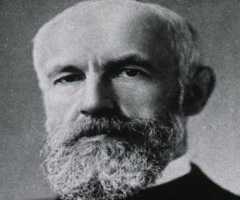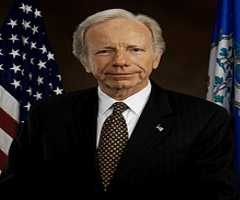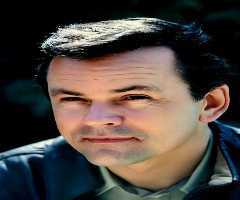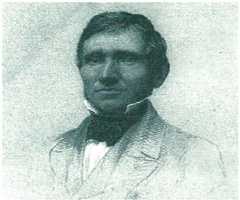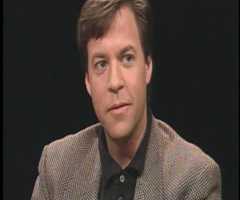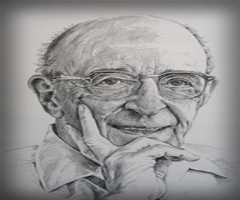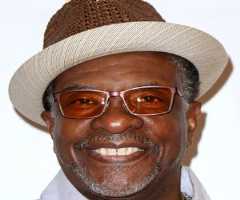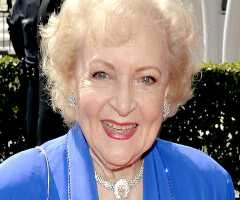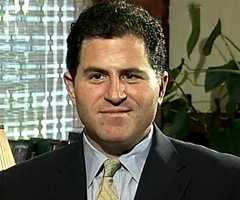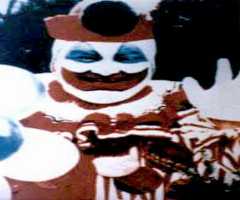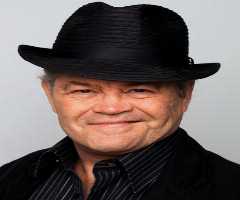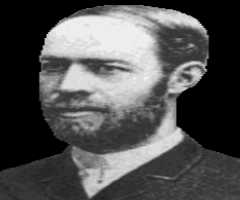Also Known For : Mathematician
Birth Place : Middletown, Connecticut, United States of America
Died On : October 27, 1980
Zodiac Sign : Pisces
John Hasbrouck Van Vleck Biography, Life, Interesting Facts
John Hasbrouck was an internationally known physicist and mathematician from America. He jointly won the Physics Nobel Prize in 1977 due to his discovery of the behavior of electrons in magnetic solids. He developed the original quantum functional theory of magnetism during the 1930s.
He made valuable contributions to the research of different varying scope of free molecules, paramagnetic relaxation, and other topics. This research was along with valuable input in the study of magnetism. With his father Edward Van Vleck being the mathematician, and his grandfather John Monroe Van Vleck being the astronomer, John was brought up in an inspiring atmosphere. He was groomed from childhood to follow scientific inquiries. John Hasbrouck went to the University of Wisconsin in Madison. He also attended Harvard University where he finished his doctorate while still a young man.
Childhood and early life
John Hasbrouck was the only child of his parents. His father was a mathematician called Edward Burr Van, and his mother was Hester Laurence Raymond. He was born in Middletown, Connecticut, March 13, 1899. His grandfather was John Monroe Van Vleck a known astronomer.
He grew up in a rationally stimulating surroundings. It was due to this influence from a young age that he displayed expertise in science and mathematics. He later came to graduate in 1920 from the University of Wisconsin–Madison with an A.B. Degree.
In 1922, John went ahead to Harvard University to take his graduate studies and graduated with a Ph.D. Later, he based his doctoral thesis on the computation of the required energy of a particular replica of the helium particle. He completed his research under the supervision of Professor Kemble. At the time, he was the only person in America who was certified to conduct a solely theoretical study on the quantum atomic physics.
Career
John Hasbrouck was presented with an opportunity to be an assistant professor at the University of Minnesota. The institution offered graduate courses to teach in 1923. Being a young scientist, he was delighted to get sufficient time for research. In 1924, he went deeper into his association principle for absorption. He revealed that in the edge of elevated numbers of quantum, a connection between intake by classical would take place within the many periodic systems and by the analogs of their quantum. This discovery was hugely momentous for that time.
He finished a report dubbed ‘Quantum Principles and Line Spectra’ for the National Research Council while still at Minnesota. It was an instant hit after its publication. In 1928, John went on to be a lecturer at Wisconsin University. He held this position until 1934. During this time as a professor, he began to write his second book titled, ‘The Theory of Electric and Magnetic Susceptibilities.’ It was published in 1932. He also developed his initial paper on the subject of crystal field theory the same year.
Later, he went to the Harvard University in mid-1930. He worked there until he reached his retirement age in 1969. At the campus, he actively served as the chairperson of the physics department (1945–49), he became the dean of engineering and applied physics department (1951–57) and was also the Hollis professor of mathematics and natural philosophy (1951–69). John founded the elementary quantum mechanical theory of magnetism as well as the crystal field theory that explained metal chemical bonding. This is what led him to be renowned as the initiator of Modern Magnetism.
He took part in the Manhattan Project that took place in World War II. This way he was a member of the academic scientist's study group that studied and developed the theory of the atomic bomb design. John’s contributions during the war period also include his job at the MIT Radiation Lab which was on the radar. He performed his duties alongside his academic responsibilities as a professor at Harvard. His research was necessary not just for the civil and the military radar systems but also to the improvement of the recent science of radio astronomy. This was also an area he impacted in a significant way.
Major works
John Hasbrouck was very instrumental in the project in Manhattan. It entailed an investigation and improvement scheme that brought about the original nuclear armaments in the midst of World War II. John scrutinized and extended the standards of the atomic bomb design. This he did along with other renowned theoretical scientists.
During the period of World War II, John Hasbrouck worked on the radar. He revealed that a wavelength of 1.25cm in the atmosphere of water molecules would cause worrying absorption. Further studies showed that 0.5 cm wavelength would be a comparable amalgamation by oxygen molecules.
Awards and achievements
In 1965, he was honored with the Irving Langmuir Award. In the year 1966, he was awarded the National Medal of Science, and he received the Elliott Cresson Medal in 1971. Three years later, he was awarded the Lorentz Medal in 1974.
In 1977, John Hasbrouck and his partners; Sir Nevill Francis Mott and Philip Warren Anderson, were together honored with the Physics Nobel Prize. This was in recognition for having done an essential theoretical examination on the electronic configuration of magnetic and disarrayed arrangements.
Personal life and legacy
John tied the knot with his wife Abigail Pearson in 1927. They were both essential art collectors. Notably they showed their interest in Japanese woodblock prints which were predominantly known as Ukiyo-e. Their marriage lasted for more than fifty years. John passed away on October 27, 1980. He was 81years old.
More Physicists
-
![Walter Houser Brattain]()
Walter Houser Brattain
-
![Sir Bernard Katz]()
Sir Bernard Katz
-
![Bertram Brockhouse]()
Bertram Brockhouse
-
![Abdus Salam]()
Abdus Salam
-
![Max Delbrück]()
Max Delbrück
-
![Augustin-Jean Fresnel]()
Augustin-Jean Fresnel
